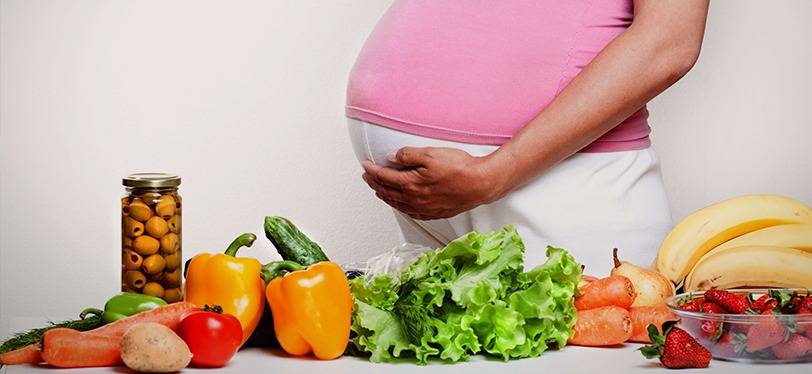Introduction
Maternal nutrition during pregnancy is crucial for both the health of the mother and the development of the growing baby. A pregnant woman’s body undergoes significant changes during pregnancy, which require additional nutrients and energy. Eating a healthy and balanced diet, taking prenatal vitamins, staying hydrated, and avoiding certain foods and substances are important aspects of maternal nutrition during pregnancy.
A pregnant woman should aim to consume a well-balanced diet that includes a variety of fruits, vegetables, whole grains, lean protein sources, and healthy fats. It is essential to increase calorie intake, protein, iron, folic acid, and calcium intake during pregnancy. Additionally, avoiding certain foods, such as raw or undercooked meat, fish with high levels of mercury, and unpasteurized dairy products, is important to reduce the risk of infection and harm to the developing baby.
Taking prenatal vitamins can help ensure that the pregnant woman is getting all the necessary vitamins and minerals for a healthy pregnancy and baby. Staying hydrated by drinking plenty of water and other fluids is also important during pregnancy. Lastly, it is vital to avoid alcohol and tobacco, as they can be harmful to the baby and may lead to complications during pregnancy.
Pregnancy is an exciting time for every mother, but it also comes with significant changes and challenges. One of the most important things during this time is taking care of your nutrition to ensure that your baby and your body are getting all the nutrients they need. In recent years, new age approaches to maternal nutrition have emerged, offering more options and a holistic approach to pregnancy nutrition.
Whole Foods
Whole foods are a crucial component of any new age maternal nutrition plan. They are foods that are as close to their natural state as possible, and they provide a wide range of essential nutrients. Eating whole foods is not only beneficial for the mother but also for the developing baby. Whole foods are high in fiber, which is important for maintaining a healthy digestive system. They also contain antioxidants, which help reduce inflammation and protect cells from damage. Some of the best whole foods to incorporate into your pregnancy diet include:
- Fruits and vegetables
- Whole grains
- Lean proteins
- Healthy fats
Probiotics
Probiotics are live bacteria and yeast that are beneficial for gut health. The gut microbiome undergoes significant changes during pregnancy, and including probiotics in your diet can help maintain a healthy balance of gut bacteria. Research suggests that the presence of good bacteria in the gut can help boost the immune system and reduce the risk of allergies and other health issues. Some of the best sources of probiotics include:
- Yogurt
- Kefir
- Kimchi
- Sauerkraut
- Kombucha
Incorporating Healthy Fats
Healthy fats are essential for your baby’s brain and eye development, and they also help to reduce inflammation in the body. Some of the best sources of healthy fats include:
- Avocado
- Nuts and seeds
- Fatty fish
- Olive oil
It is recommended to consume at least two servings of fatty fish per week to ensure adequate intake of omega-3 fatty acids. These fatty acids are crucial for the development of the baby’s brain and eyesight.
Hydrate Properly
Staying hydrated during pregnancy is crucial for both the mother and the baby. Drinking enough water helps to maintain healthy levels of amniotic fluid and helps the body flush out toxins. In addition to water, herbal teas, coconut water, and fresh fruit and vegetable juices can also be beneficial. Pregnant women should aim to drink at least eight glasses of water per day and increase their intake if they are exercising or if they live in a hot climate.
Avoid Processed Foods
Processed foods are high in unhealthy fats, salt, and sugar, and they lack essential nutrients needed during pregnancy. These foods can also increase the risk of gestational diabetes, high blood pressure, and other pregnancy-related complications. Instead, pregnant women should choose whole foods that are nutrient-dense and provide their bodies with the necessary nutrients to support a healthy pregnancy.
Benefits of New Age Approaches to Maternal Nutrition
New age approaches to maternal nutrition focus on holistic approaches to nourishing the mother and the developing baby. These approaches recognize the importance of not only the food that the mother eats but also the quality of the food, the cooking methods, and the way that it is prepared. These approaches are different from traditional approaches, which tend to focus more on what to avoid during pregnancy rather than what to include.
The new age approaches to maternal nutrition recognize that each mother and each pregnancy is unique. There is no one-size-fits-all approach to nutrition during pregnancy. Instead, these approaches focus on the individual needs of each mother and developing baby.
Another benefit of these approaches is that they place a strong emphasis on the importance of mental and emotional well-being during pregnancy. They recognize that the mind and body are connected and that taking care of one’s mental health can have a positive impact on pregnancy outcomes. Incorporating stress-management techniques, such as mindfulness, meditation, and gentle exercise, into a pregnancy nutrition plan can help reduce stress and anxiety, which can have positive effects on both the mother and the developing baby.
The Bottom Line
In conclusion, new age approaches to maternal nutrition offer a holistic and individualized approach to nourishing both the mother and developing baby. Whole foods, probiotics, healthy fats, and proper hydration are some of the key components of these approaches. By focusing on the quality of the food, cooking methods, and mental and emotional well-being, these approaches can help support a healthy pregnancy and set the foundation for a lifetime of good health for both mother and child. It is important to consult with a healthcare provider or registered dietitian to create a nutrition plan that is tailored to your individual needs and pregnancy requirements.





